Is Apple or Android Easier for Seniors?
As technology continues to evolve, seniors may find it challenging to keep up. This article aims to compare and contrast two popular mobile operating systems, Android and Apple (iOS), in terms of their ease of use for senior citizens.
In our fast-paced, ever-evolving world, the advances of technology can sometimes feel overwhelming, especially for our senior population who may not have grown up immersed in the digital age. As smartphones become an integral part of our daily lives, it's important for everyone, regardless of age, to be able to use them effectively and comfortably. This article aims to delve into a comprehensive comparison and contrast of two leading mobile operating systems, Android and Apple's iOS. We will examine these systems with a particular focus on their user-friendliness, accessibility features, and overall ease of use for senior citizens.

Our goal is to empower the elderly to not only cope, but thrive in this digital era. We aim to demystify these technologies and demonstrate that, despite their modern façade, they can be mastered by anyone, irrespective of their age or prior tech experience.
We will dissect the interfaces, explore the functionalities, and highlight the inherent benefits and potential drawbacks of both Android and iOS platforms. This comparison will not only provide a clear understanding of these operating systems but also guide seniors in choosing the best fit for their lifestyle and needs. By bridging the digital divide, we hope to enable our senior citizens to harness the power of technology, thereby enhancing their connectivity and enriching their lives in a multitude of ways.
Difference between Android and Apple Phone for Senior Citizens
The primary difference between Android and Apple lies in their operating systems. Android phones are generally more customizable, while iPhones, running on iOS, are known for their simplicity and user-friendly interface.
Expanding on the crux of the matter, the primary divergence between Android and Apple is fundamentally rooted in their contrasting operating systems. Android, the brainchild of tech giant Google, operates on an open-source basis. This means that it offers its users an extensive degree of customization. You can tweak and personalize nearly every aspect of your phone's operation, from the way the interface looks, down to how the apps interact with one another. This is a nirvana for tech-savvy users who love to tinker and make their devices truly their own. On the other hand, Apple's iPhones operate on the proprietary iOS.
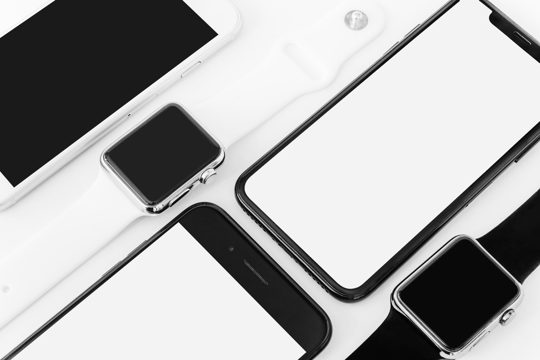
This system is celebrated for its simplicity and user-friendly interface. Apple has meticulously crafted an environment that is intuitive, smooth, and straightforward, ensuring that even the least tech-savvy users can navigate their devices with ease.
The streamlined design, the consistency across devices, and the seamless integration with other Apple products contribute to a uniform and harmonious user experience. So, in essence, these two tech powerhouses offer contrasting experiences to suit different consumer preferences. If you are someone who craves the freedom to modify and personalize, Android's flexibility might be the best fit for you. Conversely, if you value simplicity, consistency, and a user-friendly design, Apple’s iOS may prove to be the ideal choice. This dichotomy is what fuels the ongoing debate between Android and Apple, making it a fascinating study in consumer behavior and brand loyalty.
Ecosystem
When it comes to the ecosystem, Apple products are more integrated, providing a seamless experience between different devices like iPhones, iPads, and Macs. Android, on the other hand, is a bit more versatile, compatible with a broader range of devices and brands.
In the realm of digital ecosystems, Apple's product lineup, with their seamless integration, offers an unparalleled experience. This harmonious interaction between different devices - iPhones, iPads, and Macs - creates a singular, unified user experience designed to be intuitive and user-friendly. With Apple's ecosystem, you're not just using a product; you're indulging in a meticulously crafted, interconnected digital environment that promotes efficiency and ease of use. It's like enjoying a well-orchestrated symphony where each instrument, while performing its unique part, contributes to a harmonious and captivating whole. Contrarily, Android presents a more flexible and adaptable ecosystem. It's not confined to a specific range of devices or brands but extends its compatibility far and wide.
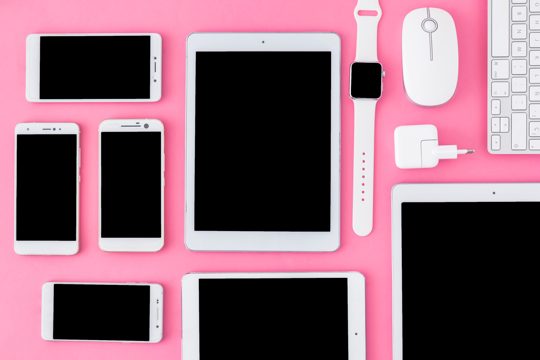
Android, with its open-source nature, embraces diversity and encourages innovation, making it a playground for tech enthusiasts who love to experiment and create. The versatility of Android goes beyond the conventional, offering a plethora of choices and customization options, making it a true digital chameleon.
It's like a jam session where various musicians bring their unique styles and instruments, creating a composition that's vibrant, diverse, and continually evolving. In essence, both Apple and Android provide distinct yet compelling experiences in their own right. While Apple's ecosystem is like a well-tuned orchestra, delivering a synchronized and seamless performance, Android is more like an open stage, welcoming a variety of performers and styles. The choice between the two often boils down to user preference, whether you seek the consistency and simplicity of Apple or the versatility and adaptability of Android.
User Interface
The user interface is one area where Apple has an edge for seniors. The simplicity and consistency of iOS can make it easier for seniors to navigate.
Androids interface is more customizable but can be slightly more complex. Indeed, the user interface is one realm where Apple often has a distinct advantage, particularly when catering to the senior demographic. The hallmark of Apple's iOS is its supreme simplicity and unwavering consistency across all devices and applications, which can significantly reduce the learning curve for seniors. Guided by intuitive design principles, iOS presents a clean, streamlined interface that makes it easier for seniors to navigate through various applications and functions. Whether it's making a phone call, sending a text, or browsing the web, the straightforward design minimizes confusion and maximizes usability. On the other hand, Android's interface is renowned for its unparalleled customizability.
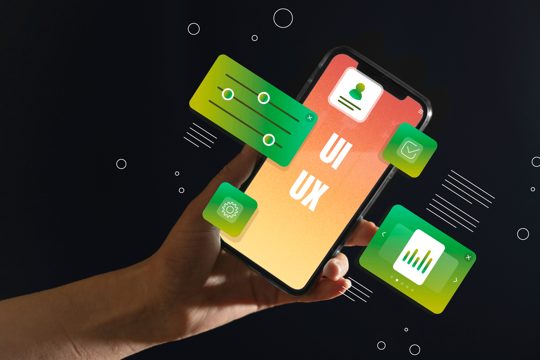
It offers a plethora of options for personalization, allowing users to tailor their device to their specific preferences. This could mean arranging apps in a particular order, changing themes, or even using widgets for quick access to certain features.
However, this high degree of customization can also introduce a layer of complexity that may be overwhelming to some seniors. The multitude of settings and options may require a steeper learning curve, which could potentially cause frustration. Therefore, while Android's flexibility may appeal to tech-savvy seniors who appreciate the ability to customize their device, Apple's user-friendly iOS interface is often better suited to those who value simplicity and consistency. By providing a seamless user experience, Apple has managed to carve out a niche for itself in the senior market, setting a high bar for user-friendly design that other companies strive to reach.
Apps
In terms of apps, both Android and iOS have a wide variety of apps available. However, Apples App Store is known for its strict quality control, which may result in a more secure and reliable app experience.
When delving into the world of applications, both Android and iOS platforms offer a vast universe of apps that cater to virtually every need or whim of the user. Whether it's gaming, productivity, lifestyle, or even niche interests, both these platforms have you covered. However, a notable differentiator comes into play when examining the quality control measures employed by each. Apple's App Store is renowned for its stringent and uncompromising quality control standards. This rigorous process may seem daunting to some developers, but it ensures that every app that makes it onto the platform meets a high standard of excellence. Every app is meticulously vetted for any potential security risks, performance issues, and user interface problems. This meticulous inspection and evaluation process can make a substantial difference in the overall user experience, contributing to a more secure, reliable, and smooth-running app. On the other hand, Android's Google Play Store also has its own set of quality control mechanisms in place.
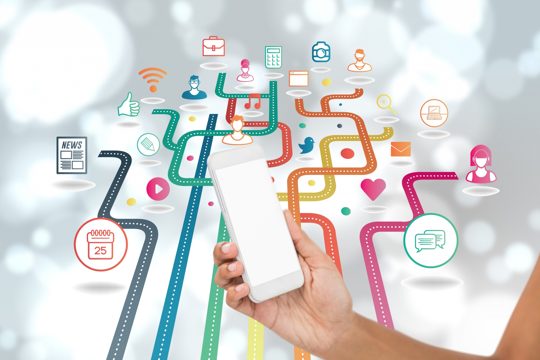
However, they are comparatively less strict, which allows for a broader range of apps, including some that might not have made the cut on Apple's platform. This can be a double-edged sword, though.
On one hand, it fosters a more diverse app ecosystem. On the other hand, it potentially opens the door to lower-quality or less secure apps. In conclusion, while both Android and iOS platforms have a wide array of apps on offer, the App Store's stringent quality control measures provide for a more secure and reliable app experience. This doesn't necessarily mean that one is superior to the other. Instead, it highlights the different priorities and strategies of each platform. The choice between the two ultimately depends on the individual user's needs, preferences, and risk tolerance.
Security
Both Android and iOS take security seriously. However, due to iOSs closed ecosystem and rigorous app vetting process, iPhones are often considered more secure than Android devices.
Without a doubt, when it comes to smartphone technology, both Android and iOS platforms undeniably prioritize the safety and security of their users. They constantly roll out updates and patches to ensure that potential vulnerabilities are addressed promptly. However, many experts have often highlighted the fact that due to iOS's closed ecosystem and rigorous app vetting process, iPhones often have an upper hand in the security department over Android devices. This argument stems from the fact that Apple's iOS is a closed system, meaning it operates within a controlled environment where apps and system processes don't interact with each other unless expressly permitted. This walled garden approach significantly reduces the risk of malicious software infiltrating the device. Moreover, Apple's strict and thorough app vetting process adds an additional layer of security.
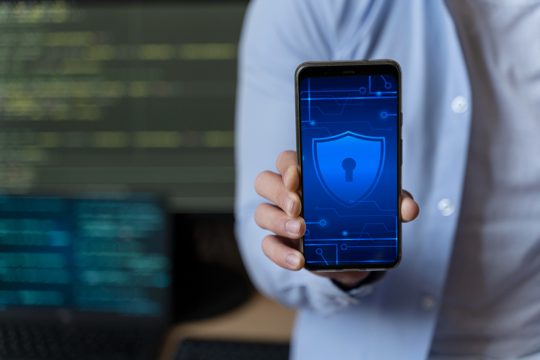
Each app goes through an intensive review before it's allowed on the App Store, subsequently minimizing the chances of a rogue app making its way onto your device. In contrast, Android's openness, one of its greatest strengths, can also be its Achilles heel when it comes to security.
Its open-source nature allows for greater customization and accessibility, but it also makes it easier for malicious software to sneak in. While Google has its own checks and balances in place, the vastness of the Android ecosystem makes it more challenging to control. In conclusion, while both Android and iOS are committed to user security, the nature of iOS's closed system and stringent app review process often leads to iPhones being considered more secure than Android devices. However, it's essential to remember that no system is entirely immune from threats, and continuous vigilance is necessary to keep your devices safe.
Price
Generally, Android devices span a wider range of prices, including more affordable options. iPhones, while known for their premium quality, are often more expensive.
Undeniably, the vast world of Android devices encompasses an impressive range of prices to cater to different customer needs. This flexibility allows individuals, regardless of their budget, to experience the capabilities of a high-tech gadget. From the bargain-priced models perfect for the budget-conscious, to the mid-range devices that strike a balance between cost and features, and all the way up to the premium, high-end smartphones that compete with the best the market has to offer - there is a device for everyone. They offer a fusion of affordability and functionality, making them a popular choice among consumers worldwide. On the other hand, iPhones have carved their niche in the realm of premium quality smartphones.

They are often associated with luxury and top-tier performance, which is reflected in their heftier price tag. Despite being more expensive, these devices are often seen as a status symbol, coveted for their sleek design, superior user interface, and the prestige that comes with the Apple brand.
Their robust performance, coupled with the promise of consistent updates and longevity, justifies the cost and appeals to a customer base that values these traits. Therefore, while Android devices cater to a broader spectrum of budgets and needs, iPhones continue to attract a segment that appreciates the nuances of a premium device. Each has its unique selling propositions and depending on your needs, preferences, and budget, you might gravitate towards one over the other.
Android or iOS for Seniors?
Choosing between Android or iOS may depend on the seniors familiarity with technology. Those who desire customization might prefer Android, while those who value simplicity might lean towards iOS.
Deciding between Android and iOS often boils down to one's familiarity and comfort with technology, especially when it comes to senior citizens. It's crucial to note that both platforms have their distinct strengths and quirks that can either enhance or inhibit the user experience, depending on a person's preferences and needs. Seniors who relish the opportunity to tailor their device to their unique needs and wants may find Android to be the perfect fit. After all, the Android platform is renowned for its flexibility and adaptability, allowing for an impressive level of customization. This means that users can tweak everything from their home screen layout to the types of notifications they receive, creating a truly personalized user experience. Android devices also come in a wide array of models and brands, offering a plethora of choices for seniors who like to keep their options open.
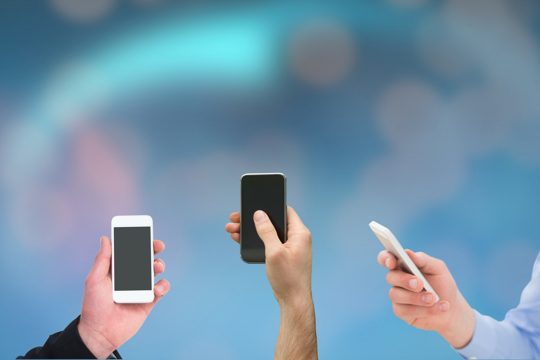
On the other hand, seniors who prioritize an uncomplicated, user-friendly interface might find themselves drawn towards iOS. Apple's operating system is famous for its elegant simplicity and intuitive design, making it incredibly easy to navigate, even for those who aren't particularly tech-savvy.
This could be particularly beneficial for seniors who may not be comfortable fiddling with too many settings or dealing with complex menus. With iOS, the user experience is streamlined and straightforward, reducing the potential for confusion or frustration. In conclusion, the choice between Android and iOS is largely a matter of personal preference, shaped by an individual's familiarity with technology, eagerness to customize, and their desire for simplicity. Providing seniors with the information they need to make an informed decision can significantly enhance their digital experience, helping them stay connected in this increasingly tech-driven world.
Android Price
When considering the price, Android phones offer more budget-friendly options while iPhones are more of a premium product. The choice would depend on the individuals budget and preference.
When considering the price, it's key to point out that Android phones offer a more diverse range of budget-friendly options, making them accessible to a wider audience. For those who are more cost-conscious or simply prefer a greater variety of models to choose from, Android phones can be an appealing choice. They come in a broad spectrum of prices, from high-end models that rival the cost of the average iPhone, to budget-focused devices that still deliver a solid performance. On the other hand, iPhones are often seen as the more premium product. They are associated with high-quality design and a sleek, modern aesthetic.
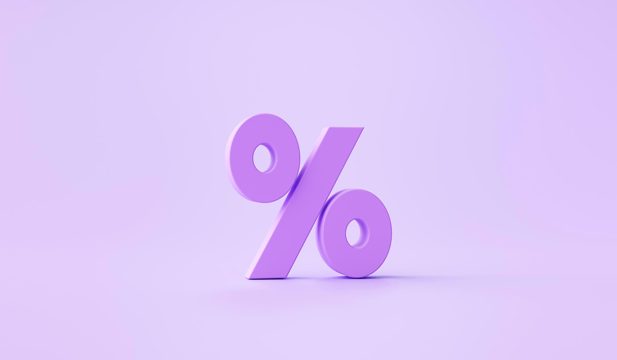
iPhones, with their cutting-edge features and robust functionality, are often considered a status symbol. While they are typically more expensive, many individuals find the seamless integration with other Apple products and the user-friendly interface to be worth the extra investment.
Ultimately, the choice between Android and iPhone would largely depend on the individual's budget and preference. Some may opt for the affordability and flexibility that Android provides, while others may be drawn to the high-end appeal and exclusive features of an iPhone. Additionally, factors such as user experience, brand loyalty, and the need for specific features or functionalities can also greatly influence this decision. It's all about finding the device that best suits your needs, preferences, and lifestyle.
Ease of Use
iOS is often praised for its ease of use, making it a great choice for seniors who are not tech-savvy. Android, while more complex, offers more options for customization.
Apple's iOS is frequently lauded for its intuitive and user-friendly interface, making it an excellent option for seniors or those who might not be as technologically adept. The operating system is smooth, sleek, and simple to navigate, with straightforward menus and large, easy-to-read icons. Each feature and application is designed with user convenience in mind, thus reducing the learning curve significantly for those not familiar with technology. This simplicity doesn't mean a compromise on functionality, however, as iOS still offers a robust range of features, from video calling and internet browsing to health monitoring and music streaming, making it a versatile choice for all users, regardless of their tech proficiency. On the other hand, while Google's Android might seem a bit more intricate and daunting for beginners with its labyrinth of settings and options, it offers an unparalleled degree of customization.
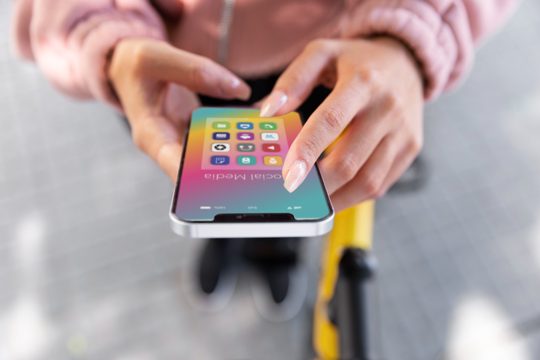
This means that users have the liberty to tailor their smartphone experience to their exact preferences. Whether it's changing the aesthetics of the home screen, deciding which apps can send notifications, or even altering how the device responds to certain commands, the choices are virtually limitless.
This makes Android a potentially more appealing choice for those who wish to have a more hands-on approach to their technology, or for those who have specific requirements that might not be catered to by the more 'one-size-fits-all' approach of iOS. In conclusion, both operating systems have their own unique strengths - iOS shines with its simplicity and ease of use, ideal for those new to technology or who prefer a more streamlined user experience. Android, conversely, excels with its flexibility and customization options, making it perfect for tech enthusiasts or those with more specific needs.
You May Like
Seniors may like that iPhones offer features like Siri for voice-command and Find My iPhone for locating lost devices. Android phones also offer similar features, but they may vary between different brands and models.
Seniors may find it particularly comforting to know that iPhones come equipped with features such as Siri, the intelligent personal assistant that can carry out tasks through simple voice commands. Whether it's sending a text message, making a call, or checking the weather, Siri is ready to assist, thereby making digital interaction seamless and convenient. Moreover, the Find My iPhone feature can be a real lifesaver. In the event that the device gets misplaced, this feature allows the user to locate their lost device quickly and securely, adding an extra layer of assurance for seniors who may be prone to forgetting where they left their device. On the other hand, Android phones are equally impressive, offering a host of features that are similar to those found on iPhones. For instance, Google Assistant, Android's counterpart to Siri, is also a voice-activated helper that can perform various tasks at the user's command.
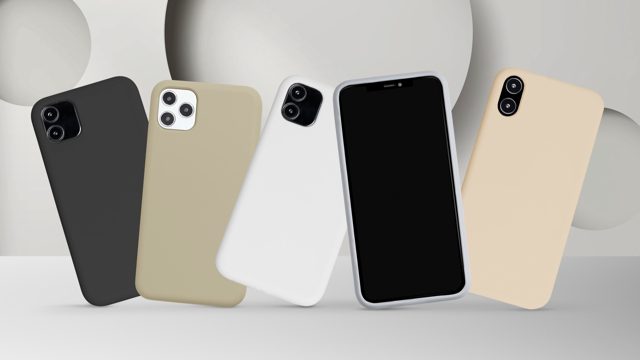
Additionally, Android's Find My Device serves the same purpose as iPhone's Find My iPhone, providing a means to locate misplaced devices. However, it's important to note that the availability and functionality of these features can vary greatly between different Android brands and models.
This offers a wide range of options for seniors to choose from, depending on their specific needs and preferences. In conclusion, both iPhones and Android phones are packed with features designed to enhance user experience and provide convenience. From voice-command assistants to device tracking capabilities, seniors can enjoy peace of mind and ease of use, regardless of their choice of device. However, the potential differences between Android brands and models can offer an opportunity for seniors to find the device that best fits their lifestyle and tech proficiency level.
Functionality
Both Android and iOS offer robust functionality. iOS stands out with its seamless integration across devices, while Android shines with its versatility and customization options.
Android and iOS are without a doubt two of the most powerful operating systems available in the market today, each offering its own unique, robust functionalities that cater to the varying needs of users. Android, with its open-source nature, offers a world of versatility, allowing users the freedom to customize their devices to their heart's content. It's a platform that encourages creativity and individuality, where users can tailor their experience, from the smallest widget to the overall look and feel of their device. This caters to the tech-savvy individuals who enjoy tweaking their devices to reflect their personal style or to increase efficiency in their daily tasks. On the other hand, iOS, the brainchild of the tech giant Apple, prides itself with its seamless integration across all its devices.
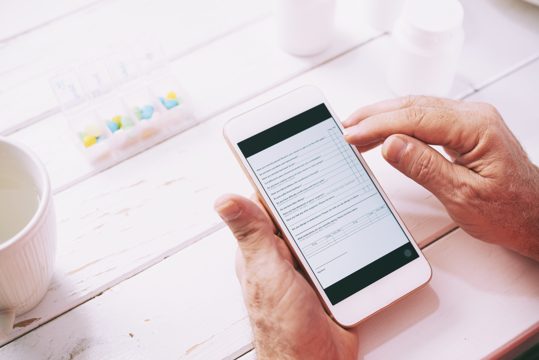
Whether you're using an iPhone, an iPad, or a Mac, you'll experience a smooth, cohesive user interface that's designed to work in harmony, providing a unified, consistent experience. This makes it incredibly user-friendly and intuitive, even for those not particularly tech-inclined.
It's this kind of streamlined user experience that has earned iOS its loyal following. In essence, both Android and iOS are remarkable in their own right. Whether it's the flexibility and customization that Android offers, or the seamless, integrated experience that iOS provides, users are spoilt for choice when it comes to selecting a platform that best suits their lifestyle and needs. It's this very diversity and competition that continue to drive innovation and improvement in the world of technology.
Ecosystem Security
In terms of security, both platforms are reliable. However, Apples closed ecosystem and strict app vetting process often result in a slightly higher level of security compared to Android.
When it comes to safeguarding your digital life, both platforms - Apple's iOS and Google's Android - provide robust and reliable security measures. However, there are subtle but important differences that may influence your decision. Apple's closed ecosystem is often hailed as the Fort Knox of mobile operating systems. It's a tightly controlled environment where apps have to pass through a stringent vetting process before they can grace the screens of users' devices. This rigorous screening process minimizes the chances of malicious software entering the ecosystem and thus, resulting in a heightened level of security.
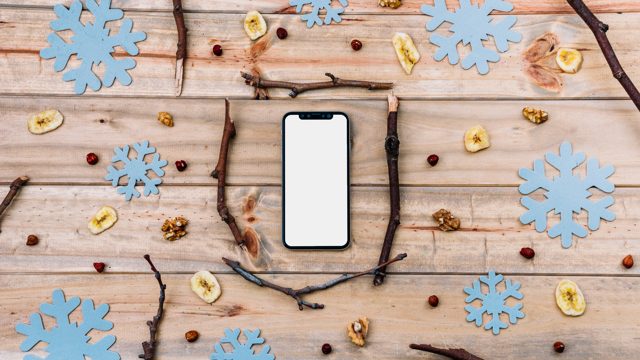
On the other hand, Android, with its open-source nature, offers a great deal of flexibility and customization, but it does so at the expense of a slightly lower security level. Android's vast user base and app availability make it a more attractive target for hackers.
This doesn't mean that Android is inherently insecure, but rather that the responsibility for security often lies more with the user. So, in the grand scheme of things, while both platforms offer significant security measures, Apple's stringent control over its ecosystem and app vetting process often tilts the security balance in its favor. Whether you value the tight security controls of Apple, or the flexibility and openness of Android, it's essential to stay vigilant and proactive in protecting your digital footprint.
Conclusion
In conclusion, both Android and Apple phones have their merits for seniors. The decision between the two often comes down to individual preference, comfort, and budget.
In conclusion, both Android and Apple phones have their merits for seniors, each boasting a myriad of features designed to cater to the unique needs of this age group. To say that one is universally better than the other would be overly simplistic, as each offers its own suite of advantages. The decision between the two often comes down to individual preference, comfort, and budget. For those who value customization and enjoy having a variety of options at their disposal, Android phones may be the ideal choice. They offer diverse price points and a wide array of models, ensuring there is something for everyone, regardless of budget or technological skill level. Plus, the Android operating system is highly customizable, allowing for an interface that can be tailored to the user's specific needs and preferences.
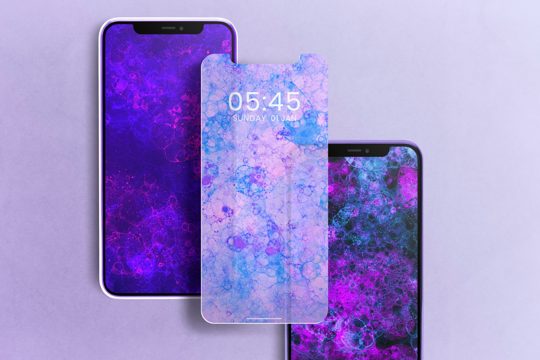
On the other hand, Apple phones are renowned for their user-friendly interface and robust security features. They are often lauded for their simplicity and intuitive design, making them an excellent choice for seniors who may be less tech-savvy or those who prioritize ease of use above all else.
Moreover, Apple's dedicated customer service and widespread availability of Apple stores for in-person assistance further contribute to a seamless user experience. However, regardless of the device chosen, it's crucial to remember that the best phone for any senior is one that they find comfortable and easy to use. It all boils down to their personal needs and expectations from a smartphone. Whether they prefer the flexibility and diversity of Android or the simplicity and security of an Apple phone, the key is to ensure they feel confident and capable while using the device. So, take time to explore the features, evaluate the pros and cons, and make an informed decision that best suits the individual's lifestyle and preferences.
About us
Welcome to SeniorCaresHub! Welcome to our comprehensive senior care destination! We pride ourselves on being a trusted resource for all things related to caring for aging loved ones. We understand the unique needs and challenges that come with senior care, and our mission is to provide you with the information, resources, and support you need to confidently navigate this journey and help you provide the best possible care for your aging loved one.

